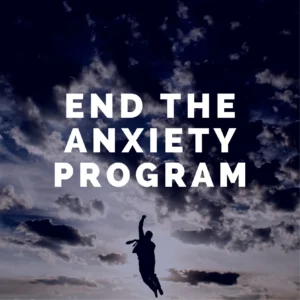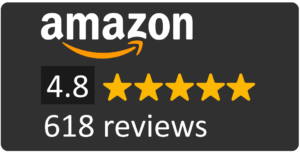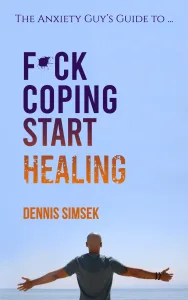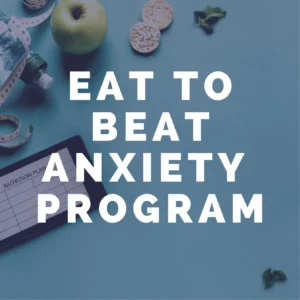Thank you for being here. I’m Dennis Simsek, and in this piece I want to speak straight from the podcast in first person – the raw, honest stuff about how loneliness shows up with health anxiety and what helped me move through it. If you want to start a CBT-based path right away, head to Health Anxiety Recovery Program and check out the Health Anxiety Program.
Use Code Healing20 for 20% Off All Anxiety Programs!

Why loneliness feels so real when you have health anxiety
When you live with health anxiety, loneliness hits differently. I lived with dizziness, overwhelm, and a constant low-level terror that other people simply could not relate to. I’d tell someone how I felt and hear suggestions that didn’t land. That misunderstanding made me feel more alone, like my experience was a mistake.1
That kind of loneliness pushed me toward thinking I was abnormal, sick beyond help, or even going crazy. The truth is that what I went through was sensitization – a subconscious problem that made normal signals feel catastrophic. Once I understood that, I could start to see the gap between how real my fear felt and how accurate those fears actually were. That shift runs deeper into change than quick fixes.
The loop loneliness creates
When I believed my life would end badly, the feeling of isolation fed the fear and the fear fed the isolation. It became a loop. The more I moped about being misunderstood, the more stuck I got. Recognizing the loop was the first step to interrupting it.2
Isolation and forums: help or harm?
I found forums and groups during my worst days. At first they were a lifeline. Being around people who had the same symptoms made me breathe easier knowing I wasn’t alone. But it can go two ways.
When connection keeps you stuck
In some groups I noticed I’d compare myself to others, or I’d cling to stories of struggle because that connection felt safer than recovery. I stopped talking about the progress I made because it felt awkward when others focused on suffering. Over time, that social comfort actually kept my health anxiety alive. That realization was painful, but it was necessary.
When groups help you heal
Other times the right group can be a real support. If people are outcome-focused and are learning evidence-based ways to get better, the group can accelerate healing rather than slow it. The difference was the group’s focus – are we sharing coping tools and wins, or are we stuck trading symptoms?
How I changed my perspective to heal
If you’re feeling lonely, a big thing that helped me was changing how I saw my symptoms. I started to notice the irrationalities in my thinking and the limits my mind was placing on life. Instead of accepting the worst possible ending as inevitable, I began to test the thought with small experiments. Those tiny wins add up and that growth runs deeper than I expected.
Small experiments that mattered
I would deliberately face small triggers and track what really happened. The outcomes rarely matched the catastrophic story my mind told. Each time I tested and survived, my sense of being separate from other people faded a little more.
Practical steps to find better support
If you’re lonely because of health anxiety, here are steps I used that you can try too.3
1. Educate the people who want to help you
If you have a support person, ask them to read about health anxiety or join a program. When they understand the condition, their advice becomes useful instead of counterproductive.
2. Choose groups wisely
Look for forums or groups that focus on recovery and share tools, not just symptoms. If a space keeps you stuck in suffering, step away.
3. Start tiny exposure tests
Do one small thing that scares you and notice what actually happens. Keep a log. The proof will build confidence.
4. Remind yourself you are not a mistake
When I felt detached from the world, I learned to name the thought and push back with facts. Saying, “I am not a mistake” became a powerful habit.
You are not a mistake: ending the cycle
When I felt hopeless, remembering I had overcome inner voices before made a huge difference. I am more than anxiety. You are too. Progress is rarely dramatic in the moment, but it compounds. If you want a community that focuses on recovery, join us for Facebook Live on weekends or find outcome-focused support online. Those connections helped me transform the loneliness into purpose, and that transformation runs deeper than the initial relief.
If you’re ready to take action today, visit Health Anxiety Recovery Program and start the program. I’ll see you in the next episode. Stay strong, warrior.
Citations
- World. (2025, July 14). Loneliness and isolation – the hidden threat to global health we can no longer ignore. Who.int; World Health Organization
↩︎ - Yang, M., Wei, W., Ren, L., Pu, Z., Zhang, Y., Li, Y., Li, X., & Wu, S. (2023). How loneliness linked to anxiety and depression: a network analysis based on Chinese university students. BMC Public Health, 23(1).
↩︎ - admin. (2025, February 17). CBT Techniques for Loneliness : Overcoming Isolation with Cognitive Behavioral Therapy – Dr. Zahid Qutab. Dr. Zahid Qutab.
↩︎




